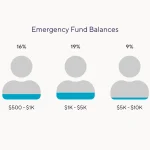
If you’re thinking about starting a gig economy career, you may want to consider a few things. Among them, you’ll need to be aware of the tax benefits of this type of work and how to plan your finances during a busy season. Additionally, it’s important to develop an emergency fund.
Diversify your income
If you’re a freelancer or a part-time worker, it’s important to diversify your income. In fact, it’s the number one way to grow your wealth and build financial freedom.
Creating a diversified portfolio involves spreading your income over several businesses, services, or industries. It also requires time and investment. However, it can be one of the most effective ways to protect your finances and save for the future.
One example of a diversified income stream is owning rental property. You can rent out single rooms, whole houses, or even your entire home. The only downside is that it can be costly to invest in a rental property.
Another way to diversify your income is to set up an online business. If you’re a writer, you can advertise your services on websites like Fiverr and Upwork. Some people also list their services on Etsy, which allows you to sell handmade items.
Build an emergency fund
When it comes to your personal finance, one of the most important things to do is to build an emergency fund. An emergency fund can help you prepare for unforeseen expenses such as a new roof, car repairs, or medical emergencies. You can build an emergency fund by saving money.
It’s best to start with a small amount. $5 per day will add up to $1,825 over the course of a year. If you save just that much, you will have an emergency fund of $9,125 in five years.
Start by creating a spreadsheet that includes your monthly expenses. This includes food, clothing, utilities, and other household expenses. Once you have a clear picture of your monthly spending, you will know how much to set aside.
Take advantage of the tax benefits of freelance work
Having a freelance business can help you take advantage of the tax benefits of being self-employed. The tax benefits of being self-employed include the ability to deduct some of your business expenses. For instance, you can deduct travel costs, gasoline and car insurance, office supplies, and more.
However, you will need to keep accurate and up-to-date records of all of your expenses and income. You should also get professional help when filing your taxes. A good tax software package can make the process easier.
The IRS allows you to deduct up to $5,000 for startup costs. These expenses might include a website, a business license, and other startup costs. If you exceed this threshold, your deductions may be reduced.
Freelancers who pay their own health insurance may be able to deduct their premiums. However, they will need to file Schedule 1 on Form 1040.
Plan for a busy season
In the gig economy, there is no escaping the fact that money can fluctuate and even change from month to month. It is therefore important to be proactive in managing your funds and creating an emergency fund. The more savings you have, the better off you are when things get busy or slow.
It is also crucial to set aside funds for your taxes. You should increase the amount withheld from your paychecks to cover your self-employed tax obligations. Additionally, you should set up your own benefits package, such as a 401(k) plan. Self-employed individuals should consider taking advantage of the Affordable Care Act exchange to find an affordable health care plan.
A good way to ensure that you have enough money to cope with unexpected bills or emergencies is to create a budget for your expenses. This means that you should have three to six months’ worth of money set aside for your monthly expenses.




